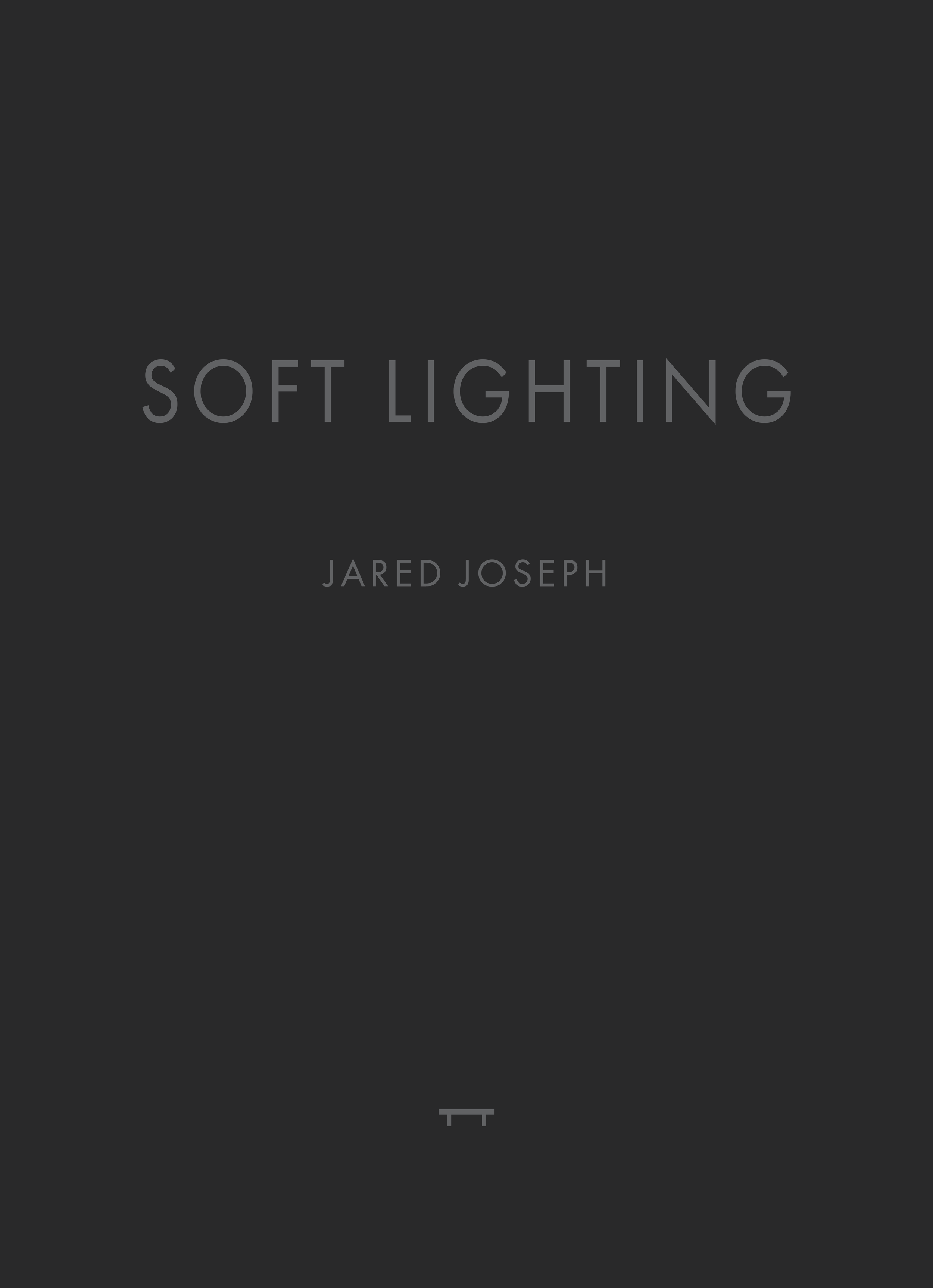SOFT LIGHTING
By Jared Joseph
Soft Lighting is written almost exclusively in the first-person singular and plural, and stages a motley of narrators (or only one) who respond to one another or who do not, and if not, I wonder whether desire for interpersonal connection withers, or excruciates. There is no setting. See if you are in it.
Jared Joseph is boring.
The question of what to say, and how to say it, and how to cultivate the light of self-knowledge, is one of the hard problems of subjectivity. But what if the transition from rigidity to flexibility, from defensiveness to vulnerability and compassion, was just a matter of saying it right, or saying it better? In Soft Lighting, Jared Joseph reveals that one can only “know thyself” when the dyad becomes the monad, at the illuminating moment Plato’s dialogues transmogrify into a David Antin talk-piece. —Joseph Mosconi, Executive Director of the Poetic Research Bureau
Soft Lighting renders each voice in the first person, as if to suggest an intimacy so absolute it obliterates even the idea of demarcation—and yet this radical intimacy, formally displayed like this, is so disorienting it reveals just how destabilizing the field of intimacy really is. But this is its core function. It doesn’t reassure us, or make us feel safe. It shakes us loose from the familiar adornments of our assumed identity, and confronts us with a mirror reflecting the face of our true being. We won’t know what we’re looking at, until we do. —Dan Hoy, author of The Deathbed Editions
This is a book set in the turbulent stasis of our fractured attention. First personhood is a tragicomedy. I look at what I have and what I want to have: there’s love and violence here. Each episode blurs elliptical. I don’t know who I am—I don’t care anymore. —Miri Karraker, co-author of Dawn Noon Dusk Midnight
We live in a terrible world, but we do live in it, want to enjoy ourselves, even understand how it all works, and why not? All that is difficult to think about, not to mention write about. Jared Joseph manages to do it. He’s a really good writer as well as an incredibly thoughtful person. This book is funny, sad, unsettling, and hard to stop reading. —Paul Mattick, Field Notes editor of Brooklyn Rail
In Jared Joseph’s Soft Lighting, we ride the waves of the “I,” of layered stories and ruminations and dialogue, as the narrator—and/or narrators, plural, we’re never quite sure—sifts through social relations and considers how to be a good person, how to interact with others, how to think about things in our current grim moment. In one moment, we're briefly brought into the world of a tabletop RPG. Later we learn about Seinfeld, the '90s, and the end of history, and the narrator tells us about Crass patches on jackets, waiting tables, love, and death, among other topics. “Everyone is doing a much better job than I could ever possibly know,” they tell us, and it’s true, even if we think of life, as they suggest, as what happens when “a black hole burps.” The narrator wants to “be a better person” or even “a person at all,” and this book’s work of prying open subjectivity and then configuring it again, over and over, is restorative—this book is beautiful and very funny and also buoying. —Marie Buck, co-author of Spoilers
Lustrous and propulsive, Soft Lighting shines on the black holes of language, the dark expanse between what is thought and what is said. Jared Joseph’s magnified awareness of words and their indeterminacy reminds me that the closest infinity is the one between thinking and feeling. —Angie Sijun Lou, Editor of Fence


